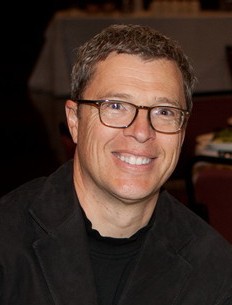Brett Scharffs on Challenges to Freedom of Religion and Belief in a Global Setting – Las Vegas, 11 March 2011

BYU Law School Professor and ICLRS Associate Director Brett Scharffs spoke at a J. Reuben Clark Society event in Las Vegas, Nevada on Friday, 11 March 2011. Professor Scharffs presented a tour d’horizon about emerging challenges to freedom of religion and belief around the world. Professor Scharffs focused on five key issues: conscientious objection, religious autonomy, defamation of religion, religion in the public square, and the increased frequency of conflicts between equality and freedom.
Scharffs also summarized recent social science research data that shows that 52 percent of countries in the world have very high, high, or moderate restrictions on freedom of religion, and that 86% of the population of the world lives in countries with moderate or higher restrictions. He also discussed the growing urgency of challenges facing religious freedom, including a growing loss of a presumption in favor of freedom of religion, registration laws and restrictive practices, land use and licensing issues that create obstacles to having places of worship, visa issues for religious personnel, and freedom of religion being interpreted in terms of an aggressive secularism as freedom from religion.
Scharffs reviewed new empirical research conducted by Brian Grim and Roger Finke and their book, The Price of Freedom Denied (Cambridge University Press, 2011), in which the two authors document significant correlations between religious freedom and other important social goods, such as political freedom, freedom of the press, civil liberties, gender empowerment, lower military spending, democratic longevity, lower poverty, among other social indicators. He also summarized Grim and Finke’s conclusions about the prevalence of religious persecution, defined as “the physical abuse or displacement of people because of religion.” They studied 148 countries (those with populations greater than 2 million), representing 99% of the world’s population. The two authors found that 86% of these countries (123) reported religious persecution in recent years, with 36 countries reporting more than 1,000 cases of religious persecution, and 25 countries reporting more than 10,000 cases. Grim and Finke argue that these conflicts do not arise because of religious freedom, but because of social and legal restrictions on freedom of religion that combine to create a vicious cycle of violence, social and legal limitations on freedom of religion, followed by more violence.
Other speakers at the Las Vegas conference included James B. Gibson, former mayor of Henderson, Nevada; Judge Thomas B. Griffith, a judge on the United States Court of Appeals for the D.C. Circuit; Chief Judge Roger L. Hunt of the Nevada federal District Court; and William F. Atkin, Associate General Counsel for the Church of Jesus Christ of Latter-day Saints.